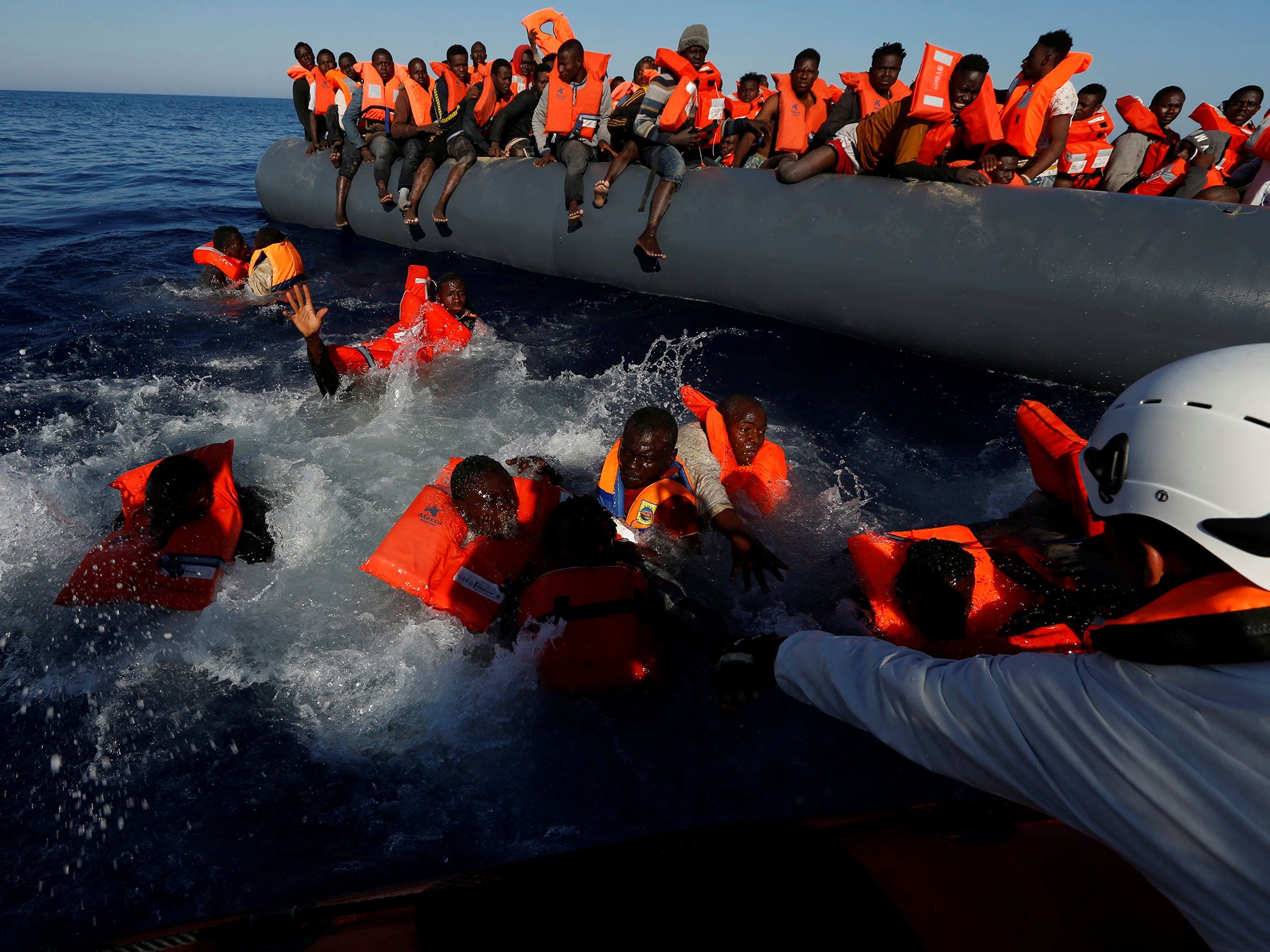EU to conduct border patrols in Libya to stop migrants reaching Europe
Strengthening the north African country's border management is “only a good idea, says Federica Mogherini, the EU High Representative for Foreign Affairs

Your support helps us to tell the story
From reproductive rights to climate change to Big Tech, The Independent is on the ground when the story is developing. Whether it's investigating the financials of Elon Musk's pro-Trump PAC or producing our latest documentary, 'The A Word', which shines a light on the American women fighting for reproductive rights, we know how important it is to parse out the facts from the messaging.
At such a critical moment in US history, we need reporters on the ground. Your donation allows us to keep sending journalists to speak to both sides of the story.
The Independent is trusted by Americans across the entire political spectrum. And unlike many other quality news outlets, we choose not to lock Americans out of our reporting and analysis with paywalls. We believe quality journalism should be available to everyone, paid for by those who can afford it.
Your support makes all the difference.Plans that would see European border agents conduct patrols in Libya to stop the flow of migrants have been welcomed by the EU High Representative for Foreign Affairs.
Federica Mogherini said strengthening the north African country's border management was “only a good idea”, although she said there was already an EU mission, lead by Italy, that specifically addressed the issue.
The Italian Commissioner also stated her support for ''the appeal by Germany and Italy for work to be stepped up on the southern border of Libya'' to control the movement of African migrants across the desert.
Her comments were a response to a letter from German Interior Minister Thomas de Maziere, and his Italian counterpart Marco Minniti to the European Commission, which requested an EU presence on the border between Libya and Niger “as soon as possible”.
"The first months of this year have shown that our efforts up to this point have been insufficient," they said.
“We must prevent hundreds of thousands of people who are in the hands of smugglers from risking their lives in Libya and the Mediterranean."
Libya is now the principal point of entry to Europe for African migrants.
This year The International Organisation for Migration (IOM) says more than 45,000 people have reached Italy by boat from North Africa, an increase of over 40 percent on the same period of 2016. More than 1,200 are said to have died on the way.
The European Commission is looking at proposals for an EU force which would assist Libyan border officials in their work, according to reports in German press.
The smuggling of people and contraband has grown in Libya, as militias capitalise on the lack of stable government for enormous financial gain. The IOM has also reported that refugees are being sold at modern-day slave markets in Libya.
Simon McMahon, a researcher of migration and refugees at the University of Coventry, said he thought an EU presence would be ineffective and serve only to further increase danger for migrants travelling through Libya.
“We know that border controls don’t really stop people from moving, they just shape the way people move," he said.
“In the short term, a militarised border would benefit the smugglers, because people will still need to make those journeys regardless of an EU presence. In the long term, it's almost certain to make those journeys increasingly dangerous.”
He added: "This plan doesn't address the root cause of why people are moving, it just seeks to stop them moving in the first place."
Mr McMahon was part of the MEDMIG project, which conducted extensive interviews with African migrants hoping to reach Libya. The team found that 80 to 90 per cent of migrants from West and Central Africa had experienced violence while passing through Libya.
“Europe has had a presence in the region for some time, but the desire to control the border of a country which isn't an EU state is certainly new and unprecedented,” he said.
Join our commenting forum
Join thought-provoking conversations, follow other Independent readers and see their replies
Comments